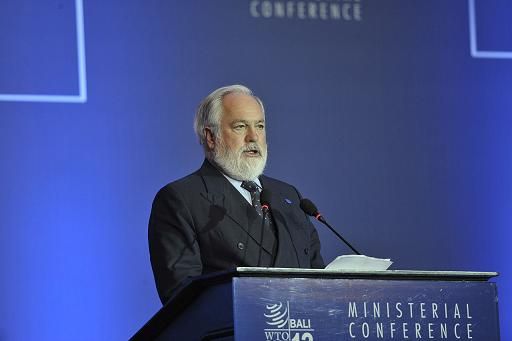New EU climate and energy chief under pressure to drop oil shares
New EU Commissioner for Climate Action and Energy, Miguel Arias Cañete, is under pressure to drop his shares in two oil companies and his appointment could still be vetoed by MEP’s

The newly nominated EU Commissioner for Climate Action and Energy, Miguel Arias Cañete, is under pressure to drop his shares in two oil companies and his appointment could still be vetoed by MEP’s.
European Commissioner Jean-Claude Junker appointed Cañete this week and members of European parliament say his ownership of the shares are a clear conflict of interest.
Members of the European Parliament (MEP’s) have called for the former Spanish Minister of Agriculture, Food and Environment to dispose of the shareholdings before giving his nomination the go ahead at European parliament hearings scheduled for later this month.
Cañete recorded holdings in two oil companies, Ducor SL and Petrologis Canarias SL which were valued at €326,000 (£259,000) by the Spanish government in 2011.
He had served as president of both companies but stepped down in 2012.
Juncker confirmed the roles of Energy and Climate Action Commissioners had now been combined with the new role being assumed by Cañete with the Energy and Climate Action departments remaining separate entities.
Environment committee member Jo Leinen was one of 25 all-party MEPs on the environment committee who signed a letter to Juncker last week protesting the decision to merge the roles, warning it could weaken the EU's position in future climate negotiations.
The Climate Action directorate was established after the European election in 2010 to implement climate and energy goals for 2020 that include 20 per cent cut in emissions, improvements in energy efficiency and expansion of the renewable energy market.
Juncker said: "I want to reform and reorganise Europe's energy policy into a new European Energy Union. We need to pool our resources, combine our infrastructures and unite our negotiating power vis-à-vis third countries. We need to diversify our energy sources, and reduce the high energy dependency of several of our Member States."
The Commission has maintained that the merger will aid decarbonisation efforts, by creating a single commissioner responsible for bolstering the renewables market, improving energy security, and tackling climate change.





